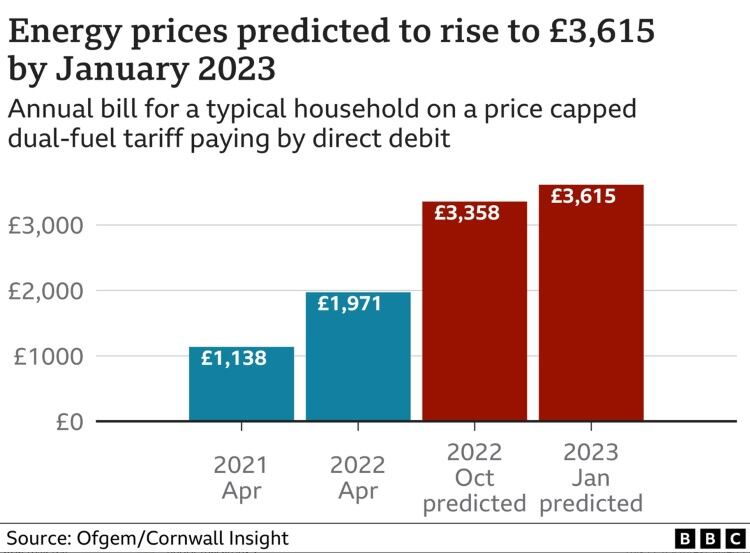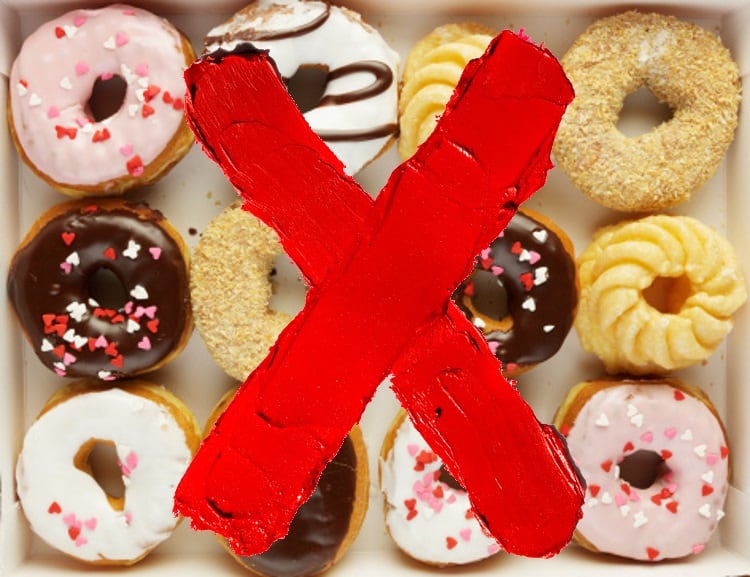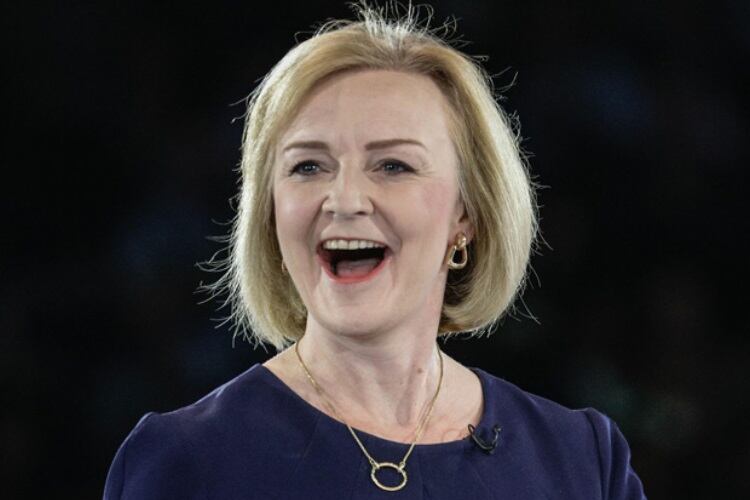Following the Rt Hon Liz Truss’ first speech as the UK Prime Minister, Walid Koudmani, chief market analyst at financial brokerage XTB, noted the pound “retreated a tad” against the dollar, however, “investors both at home and abroad are watching developments with a keen eye”.
Focus is firmly directed on her energy plan, expected to be announced tomorrow.
“It’s likely that a freeze to energy prices at around £2,500 per year will see a cost to the public purse of more than £100bn,” said Koudmani.
Energy crisis
The ripple effect of runaway energy prices is driving up food prices, which – following Russia’s invasion of Ukraine – are at an all-time high, putting millions of consumers at risk.
According to the World Food Programme, the number of people facing acute food insecurity more than tripled between 2017 and 2021, and could further increase by 17% to 323 million this year as a result of the conflict.

The food industry, too, is at risk of collapsing. Many SMEs (small and medium sized) firms are just recovering from the pandemic, but now face even bigger challenges – and even bankruptcy – with the soaring gas and electricity costs.
FDF chief executive Karen Betts has welcomed the appointment of Truss as the new PM, noting that in her run-up campaign, Truss promised to put food production at the heart of her leadership campaign.
“Food and drink manufacturers of all kinds and their staff across the UK work tirelessly to ensure delicious, affordable and safe food and drink is available to everyone, everywhere, every day,” said Betts.
She added that Truss has “long championed our industry and know the challenges we face, from soaring energy and ingredient prices, to unnecessary red tape and skills shortage.”
National Food Strategy
What is really needed from Truss is a fast-working, short-term punch to turn things around: the foundation of a call by a range of trade bodies to rewrite the National Food Strategy to take the ‘unparalleled’ impact of the current energy crisis into account.
In a letter sent on Monday, the Federation of Bakers (FoB), the Provision Trade Federation (PTF) and the Federation of Wholesale Distributors, among others, said a huge chunk of the UK’s F&B industry would not survive unless there was government intervention.
The 7,500+ businesses that make up the sector have a combined turnover of £21bn and employ more than 134,000 people.
“We are concerned about the extraordinary pressures facing the food and drink industry,” said PTF director general Rod Addy.
“The situation is so serious that we felt it could not wait for the prime minister and cabinet to be in place.”
Oil turmoil
A BakeryandSnacks article published on 30 August highlighted the concerns facing the industry today.
For example, Scottish Bakers said the early signs of rising costs began to become evident over a year ago, but nothing prepared the industry for the runaway situation it faces today.
Electricity has skyrocketed by a mind-numbing 214%; gas by a whopping 207%; fuel by 44%. Ingredient costs, too, have jumped by 41% – placing the sector on a knife-edge.
Thankfully, the supply of sunflower oil – a fundamental staple ingredient for the bakery and snacks sectors, but severely affected by the conflict – is [hesitantly] starting to trickle again.
“Ukrainian farmers have been able to sow sunflower seeds for the November harvest, with around 50% of the usual volumes planted,” David McDiarmid, corporate relations director for the Princes Group told BakeryandSnacks.
“The situation, in general, remains uncertain, dependent on how possible harvesting is in November, but Edible Oils Limited is confident that sunflower oil will continue to be available, whilst continuing to offer alternatives to customers and consumers such as rapeseed oil and corn oils.”
Ukraine and Russia are the dominant sources of the supply of sunflower oil, so the impact has been global – and it’s certainly not smooth pouring as yet.
Added McDiarmid, “There will certainly be an impact on any Ukrainian crop in 2022 and the forward position in terms of crops and infrastructure for seed crushing is, of course, in doubt.
“The Ukraine war has disrupted a number of supply chains for all oil types, which has had an effect on pricing and this volatility will continue for some time.”
Green deal

Fuel, electricity, gas, oil, wheat and labour are not the only challenges being dished up to the new PM. Deepening her exceedingly packed agenda is climate change – very evident in the supreme weather pummelling the UK, along with the rest of the globe.
“Although we have taken recent strides forward – such as through the introduction of the Environment Act – government policies need to be far more ambitious if we are to reverse these trends and meet our net zero targets,” said Nick Henson, associate director of Biocensus, part of UK sustainability consultancy RSK Group.
“This is particularly important during times of economic hardship, when there will be a greater temptation to provide economic stability and growth at the possible expense of the environment.”
Mark Gibson, business development director of RSK Group, said the UK needs to compile “a detailed net zero investment plan, providing clear focus on where financing is needed, how much, when and what it will achieve.
“Realising objectives in the UK’s 25 Year Environment Plan, National Adaptation Programme, Net Zero Strategy and Energy Security Strategy requires considerable amounts of financing to be mobilised. Estimates for the Net Zero Strategy, for instance, indicate that annual investment needs to increase from current levels in the order of £10-£15 billion to a minimum £50-£60 billion to 2030.
“Currently in the UK, private sector investment for the protection and restoration of nature is a long way short of where it needs to be – targets of a minimum annual £500 million of private finance by 2027 and greater than £1 billion a year by 2030 have been set by the government.
“How can the government facilitate those investments? Part of the answer lies in producing a detailed investment plan: one that shows targets by sector and their capital requirements, the incentives available and policy levers that can be used to mobilise investment.”
Meanwhile, in Scotland

In response to the recently published Scottish Government’s Programme for Government 2022-23, FDF Scotland’s CEO David Thomson, said, “Containing price rises has become near-on impossible for the food and drink industry despite the best efforts from our companies. It is great to see that the Scottish Government has committed to working with businesses to identify ways to help address the increased costs.
“It is extremely disappointing, however, to see that the Scottish Government still intends to bring forward a bill to restrict the promotions of food and drink.”
FDF Scotland has long voiced its concern over the upcoming regulations on products deemed high in fat, sugar and sodium (HFSS).
“They should not be bringing forward a law that will increase the cost of everyday food and drink at a time when Scottish families are struggling to make ends meet,” added Thomson.
Conversely, it is “very supportive” of the Food Security Unit being set up within the Scottish Government.
“This will help build a more resilient Scottish food and drink supply chain. It should be set up immediately and its first task should be to work with business organisations to find immediate solutions to the energy crisis and carbon dioxide supply.
“We look forward to continuing a productive relationship with the Scottish Government to support Scotland’s vital food and drink businesses through these challenging times and to ensure future growth.”


